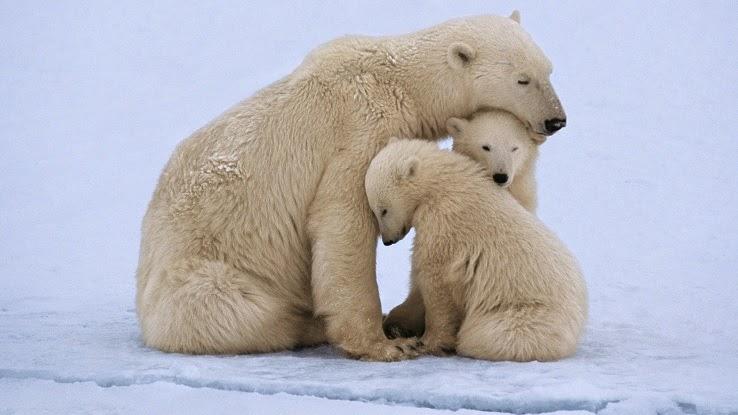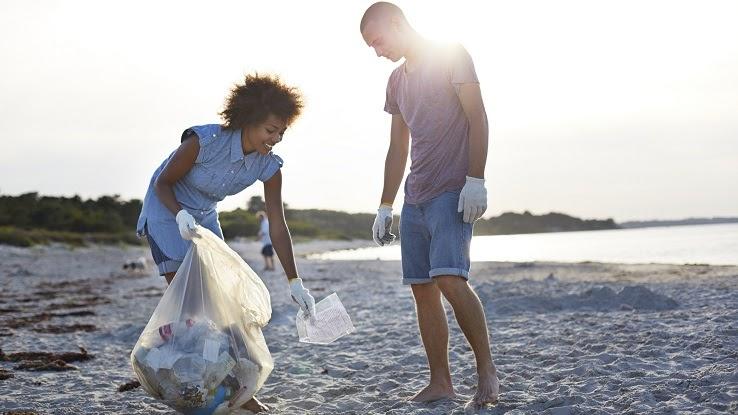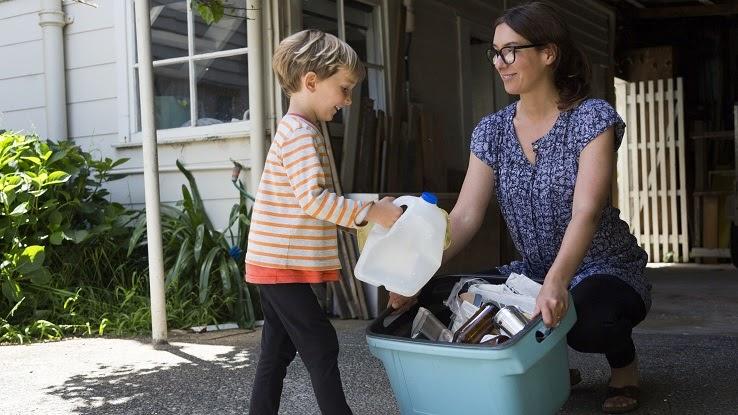Future Predictions if Climate Change Continues Future Predictions of Climate Change Continues

The environment is a prominent topic in the news today, and for good reason. Climate change is threatening to shift our daily living in almost unimaginable ways, and it's already creating long-term effects that harm the people and animals who call Earth home. Beyond deforestation and melting glaciers, though, environmental issues are also highlighted when natural disasters impact communities.
While we tend to think of it on a global scale, the environment includes all of a person or animal's immediate surroundings. In this smaller scope, an environment can be an office, school or home. But on a larger level, the global environment includes the entire Earth. Both are subject to improvements and damage that result from human activities, and these in turn can have a large impact on our lives. To better understand how these impacts play out, it's essential to learn about the importance of the various environments we inhabit.
While people often think of the environment as the natural world — which is indeed one way to look at it — each person also has an individual environment, and these can look different from person to person. A student's daily environment may be a school. An executive's daily environment may be an office, and stay-at-home parents call their houses their daily environments.
In the past, humans lived mainly outdoors, finding temporary shelter in natural landscapes such as caves and the canopies of foliage that served as their primary environments. But over millennia, humans began building more sophisticated structures to make up their environments. And they began needing to do more to keep those environments habitable. No matter where a person lives, there's ongoing evidence that it's important to have a clean environment. People who live in unsanitary environments are more susceptible to developing physical and mental health conditions that can diminish their quality of life.
Today, standards of cleanliness and sanitation are more respected than they have been at any other point in human history. Legal systems consider raising a child in an unclean home to be a form of neglect, and doctors agree to take universal precautions to uphold rigorous standards of cleanliness to prevent disease. These developments have helped human lifespans increase. When people take better care of the world around them, they feel better and live longer.
What Is Global Warming, and What Causes It?
Global warming is the process that involves the earth's overall temperature increasing over time. This rise in temperature has effects that are seen and measured in everything from ocean temperatures to average temperatures in climates around the world to increases in weather-related natural disasters. Although there have always been fluctuations in the global climate, scientists are concerned that the earth has been getting hotter faster in recent decades, in large part due to human causes of global warming.

Overall, global warming is caused by the greenhouse effect. Earth's atmosphere is full of gases called greenhouse gases. Without these gases, heat from the sun would float back into space, and living on Earth would not be nearly as comfortable. When gases trap heat within the earth's atmosphere, this is called the greenhouse effect.
The greenhouse effect is supposed to happen, but lately, it's been occurring to a far more extensive degree than what the planet requires for its inhabitants to stay healthy. This overactive greenhouse effect is trapping too much heat inside the earth's atmosphere, and that excess heat is affecting the environment on the planet's surface in negative ways. Humans are the leading cause of global warming because human activity produces too much carbon dioxide. Carbon dioxide is a major greenhouse gas that's responsible for keeping excess levels of heat inside the earth's atmosphere.
A large portion of the earth receives energy from electricity. Although clean energy alternatives exist, much of the electricity on earth is still produced from the burning of fossil fuels. This activity emits tons of carbon dioxide into the environment, increasing the negative effects of greenhouse gases. Operations at many factories also leach out carbon dioxide into the environment. Gas-powered cars, which are the leading form of transportation in many parts of the world, are also culprits for pumping carbon dioxide into the atmosphere.
Although a lot of environmental damage has already taken place, humans are able to make a positive impact on the environment by taking steps to reduce the amount of carbon dioxide that's released to eventually collect as greenhouse gases. There are several resources to help individuals and communities reduce their carbon footprint, and many large corporations have even taken pledges to do the same in an effort to stop climate change.

These are a few of the actions that individuals can take to help care for the environment:
Talking to other people about the importance of maintaining a healthy environment
Using energy-efficient light bulbs and turning off the lights when they're not in use
Recycling whenever possible
Walking or biking to nearby places instead of driving
Making sure that doors and windows are properly sealed to prevent air from escaping and energy from being wasted
In addition, there are actions that communities can take to help care for the environment. These include:
Creating municipal recycling programs
Using renewable energy in large buildings such as schools
Building more sidewalks and bike trails to facilitate car-free travel
Hosting community cleanup days to pick up litter and beautify public spaces
There Is Still Hope
The environment was not harmed by one person, country or corporation. Its current damaged state came from the collective efforts, purposeful or not, of billions of people and large-scale corporate activities. At the same time, no one should feel too small to make a positive impact on the environment. If 100 people all make a small change, this turns into a big impact on the environment. Past experience demonstrates that humans can be very powerful in a positive way.

For example, the Thames River that flows through London was once so polluted that it was like a giant cesspool, causing aquatic life to die off in large numbers. In Victorian times, some doctors recommended that patients move away from London because the smell of the river was making them sick.
In modern times, people in London have made an effort to stop polluting the Thames, and the river is in much better condition today. Humans can change the environment for the better. The Thames River is not a one-off example. Similar victories for the environment have happened all over the world.
Scientists have long been warning communities across the globe that the environment's condition is worsening, but humans have the power to make Earth a healthier, happier home. It's not too late to slow the long-term impacts of negligence towards the environment, but it's getting closer to the point that these effects may become irreversible. That's why it's critical we begin to make changes today — before it's too late. Change can start with one person, one family or one city, and it needs to happen now, with each one of us.
goulartpoette2001.blogspot.com
Source: https://www.reference.com/science/important-clean-environment-7b77a45013d1aae9?utm_content=params%3Ao%3D740005%26ad%3DdirN%26qo%3DserpIndex&ueid=73421927-6613-4440-8d2d-3f6005fdcc4f
0 Response to "Future Predictions if Climate Change Continues Future Predictions of Climate Change Continues"
Post a Comment